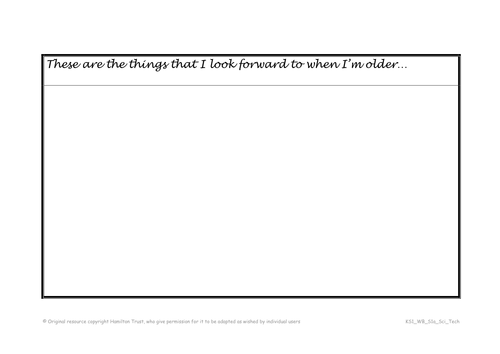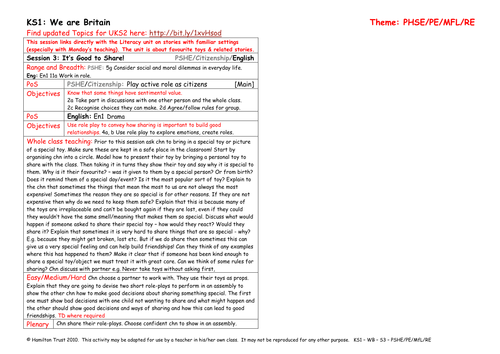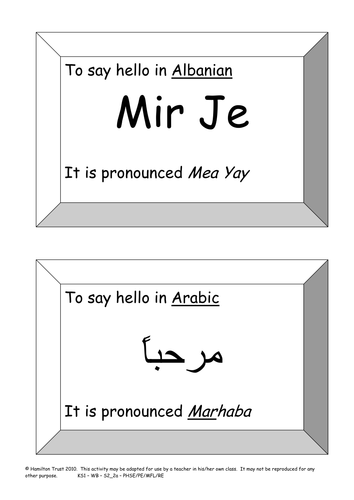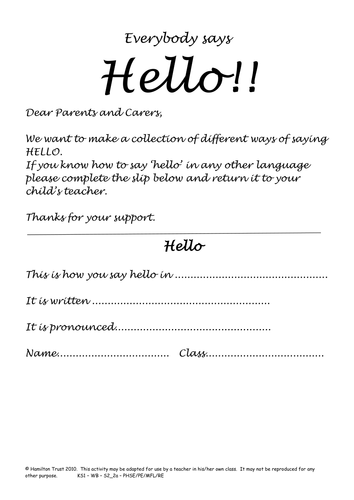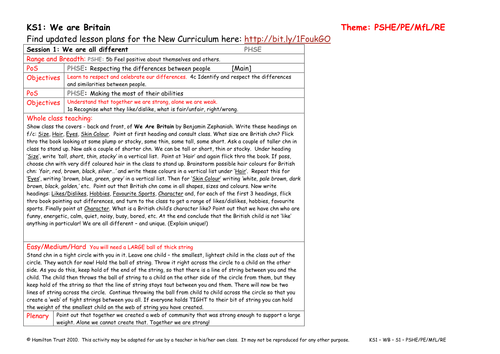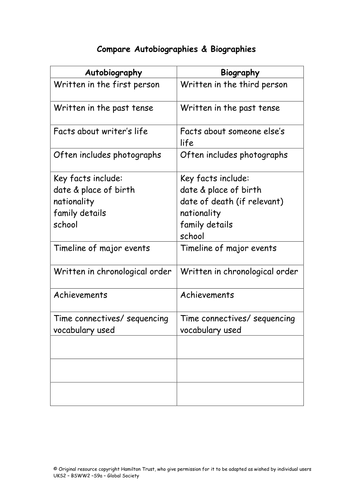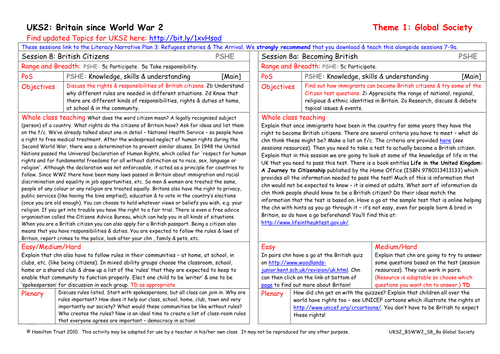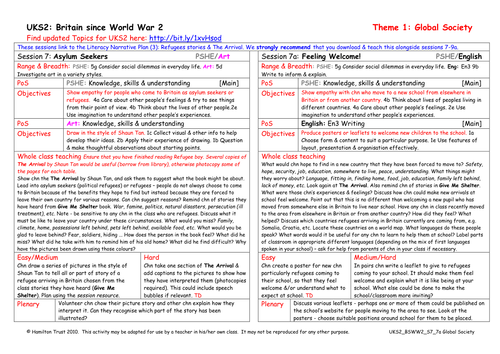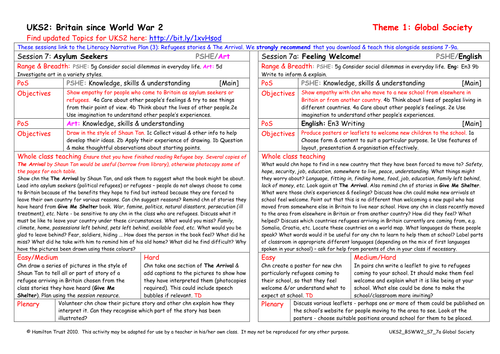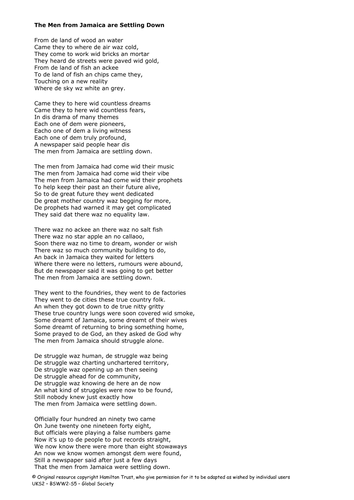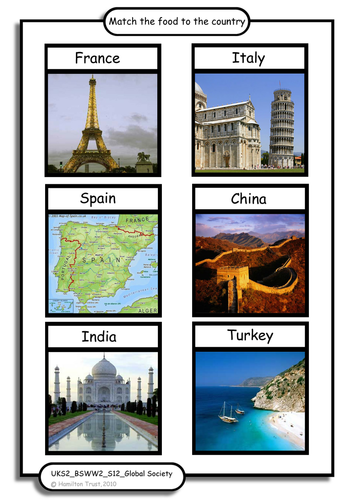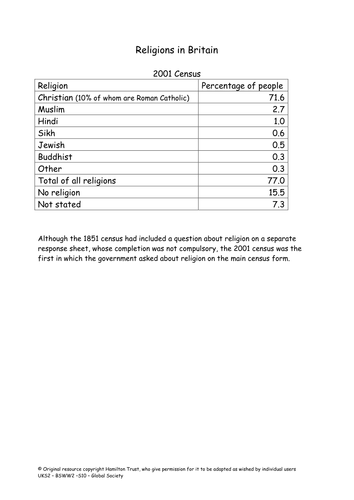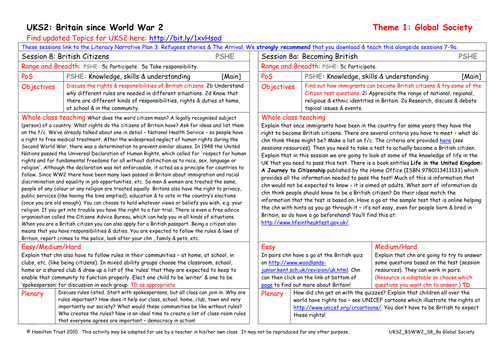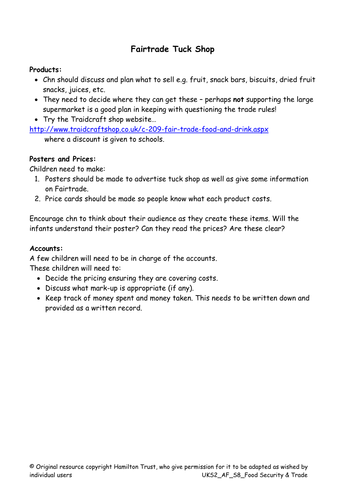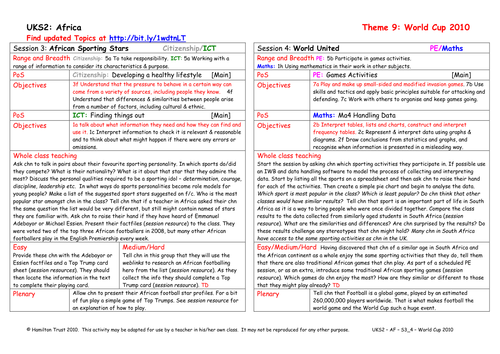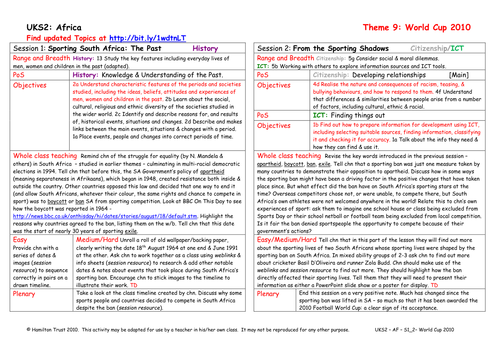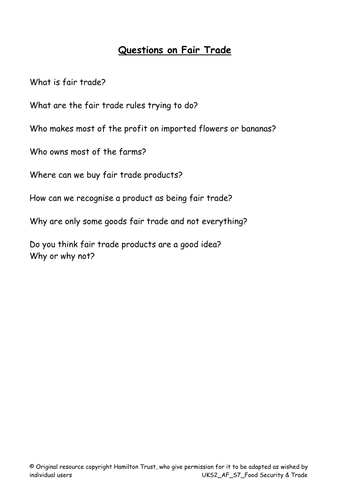
397Uploads
10041k+Views
11644k+Downloads
Citizenship

Who wants to grow up?
Children continue to explore how our bodies and minds change as we get older and how this might affect us in old age. They go on to explore their feelings and frustrations about wanting to be older.

Not In My Back Yard
Discuss a proposed plan for creating wind energy. They are given time to research and prepare for a debate ‘Should 7,000 wind turbines be placed in and around the UK?’ In teams they will put forward their views backed up with evidence to support their case.

Tumble Driers
Children find out how a tumble drier works, list the advantages and disadvantages of tumble driers and then have a debate about whether they are a good or bad thing!

Learning new ways to say Hello
Learn another circle game and then find out lots of different ways to say hello. Practice saying hello making good eye contact. Work as part of a group to make a ‘hello’ flag. Teach the new hello to the rest of the class.

We All Say Hello
Play circle games to practice greeting each other confidently. How many ways do children know to say hello in a different language? Learn 3 new ways.

We are all different
Children explore the idea stemming from ‘We Are Britain’ that there is no one image or character a of British person. We come in all shapes and sizes, colours and creeds. A splendid activity makes the point that united we make strong communities.

Tumble Driers
Children find out how a tumble drier works, list the advantages and disadvantages of tumble driers and then have a debate about whether they are a good or bad thing!

Biographies
Discuss biographies and autobiographies and list the features of each showing diffs. Chn write a fact file or biography of one of well-known immigrants or descendants of immigrants identified in S10. Make class books for other children to read in school library.

British Citizen
Find out what the rights and responsibilities of a British citizen are. Discuss why rules or laws have to be passed for communities to function properly. Children work in groups to list the ‘rules’ needed in their communities, e.g. home, town, school, clubs.

Feeling Welcome
New arrivals in Britain should be made to feel welcome. Think about children moving to a new school from another part of Britain or from another country. Children create posters or write leaflets to welcome newcomers to their school.

Asylum Seekers
Explain that some people come to Britain as asylum seekers or refugees to escape from problems in their home country. Use The Arrival by Shaun Tan to empathise with people coming to Britain. Children draw part of one of short stories from Give me Shelter.

Notting Hill Carnival
Read Benjamin Zephaniah’s poem The Men from Jamaica are Settling Down. Discuss the treatment that migrants from the Caribbean received from some British people. Explain how this lead to riots and the first Notting Hill Carnival. Children design carnival costume.

Merging Cultures
Celebrate the diversity of British people! The cultures of immigrants from many countries who have come to Britain since WW2 have been merged with the pre-war British culture to provide a great variety of foods, music, clothes and dance. Explore and enjoy!

Multi-Faith Britain
One of the important changes in British society since WW2 has been the rise in numbers of people with different religious beliefs. Christianity remains the main religion. Investigate the main religions that are now practised in Britain and create display.

Becoming British
Immigrants who have been in Britain for a few years can ask to become British citizens. Take a look at the criteria they have to meet and some sample questions from the test they have to take. Explain that children around the world share some rights.

Fair Trade Tuck Shop
Children consider arguments for and against fairtrade. They plan to set up a fairtrade tuck shop to raise awareness.
Design and make posters to advertise the tuck shop and explain some of the issues surrounding fairtrade. Some children organise the stock and accounts.

World Trade Game
Through playing the Christian Aid Chocolate Trade Game (need internet) children come to understand, in a fun way that world trade rules are unfair to developing food producing countries. They think about human causes of food security issues.

African Sporting Stars
Who is your sporting hero? Children consider who their sporting heroes are, what makes them great and introduces the idea of sportspeople as role models. Children then investigate some African football idols for a game of top trumps.

From the Sporting Shadows
Since the ban was lifted South Africa has become one of the World’s top sporting nations and has even been awarded the World Cup in 2010. But what impact did the ban have on the lives of South Africa’s sporting stars of the past?

Fair Trade
Children consider arguments for buying fair trade produce and look at relevant websites including Christian Aid and Oxfam.
Children think about how fair trade does not address causes – unfair trade rules and greedy practices. How can we campaign to change these?

